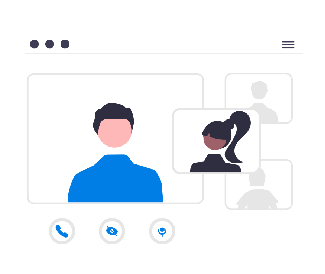What Is Skills-Based Hiring in HR?
Skills-based hiring is a recruitment strategy where employers prioritize job-related competencies over formal degrees, years of experience, or past job titles. This approach evaluates whether candidates have the specific hard and soft skills needed to perform a job effectively, regardless of how or where those skills were acquired.
Skills-based hiring is revolutionizing the recruitment landscape by shifting the focus from traditional credentials like degrees and job titles to actual skills and capabilities. Instead of solely evaluating a candidate based on their academic qualifications or past job titles, this approach emphasizes whether they possess the skills necessary to perform the role successfully.
Key Characteristics of Skills-Based Hiring:
- Focus on capabilities over credentials
- Skill assessments form the core of the selection process
- Open access to talent from non-traditional educational or professional backgrounds
- Emphasis on job performance potential, not pedigree
This approach is particularly effective in fields like software development, digital marketing, customer service, data analysis, and even roles in manufacturing and logistics, where demonstrable skills often outweigh formal education.
By incorporating skills-based hiring practices, companies ensure they hire based on what a candidate can do, not just what's written on their resume.
How Does Skills-Based Hiring Differ from Traditional Hiring?
The traditional hiring model relies heavily on educational qualifications, certifications, and years of experience. It often screens candidates based on these criteria even before reviewing actual competencies. In contrast, hiring for skills flips this model on its head.
Here's a detailed comparison:
| Criteria | Traditional Hiring | Skills-Based Hiring |
|---|---|---|
| Screening Focus | Degrees, Designations, Experience | Skills, Practical Competency, Tests |
| Assessment Tools | Resume review, interviews | Skill assessments, job simulations |
| Bias Potential | High (due to academic or background bias) | Reduced (emphasis on abilities) |
| Time-to-Hire | Often slower | Faster, especially for volume hiring |
| Talent Pool | Limited to credentialed candidates | Expanded to non-traditional candidates |
Example: A traditional hiring manager may reject a candidate for a content writing role because they don't have a literature degree. A skills-based recruiter will test their grammar, research, and writing skills and might find an excellent writer regardless of educational background.
This approach helps eliminate outdated filters and unlocks high-potential talent that may be overlooked in traditional systems.
Why Skills-Based Hiring Is on the Rise
Skills-based hiring is growing rapidly across industries and geographies, and for good reason. Several shifts in the labor market and recruitment ecosystem have contributed to this trend.
1. Evolving Job Roles
The nature of jobs is changing. Many modern roles, especially in tech and digital domains, don't require formal degrees but demand current, demonstrable skills like coding, analytics, UI/UX design, or digital communication.
2. Talent Shortages
Industries facing skill shortages, like IT, manufacturing, and healthcare, are looking beyond conventional degrees to fill positions faster by identifying candidates who can do the job regardless of their qualifications.
3. Growth of Online Learning
Platforms like Coursera, Udemy, and Google Career Certificates have empowered individuals to develop in-demand skills through non-traditional routes, challenging the supremacy of formal education.
4. Diversity, Equity & Inclusion (DEI) Goals
Skills-based hiring supports DEI by opening the door to talent from diverse socio-economic and educational backgrounds. It helps organizations move beyond elite institutions and recognize real-world abilities.
5. Technological Advancements in Hiring
With tools like AI-powered skill assessments, project-based screening, and applicant tracking systems (like Qandle's Hiring Software), it has become easier to evaluate and hire candidates based on skills.
Benefits of Using a Skills-Based Hiring Approach
Adopting a skills-based hiring model can yield substantial benefits for both organizations and job seekers. Below are the key advantages:
1. Wider Talent Pool
By removing strict educational or experience requirements, employers can access a larger, more diverse candidate base, including freelancers, career changers, and self-taught professionals.
2. Improved Job Fit
Hiring based on required competencies increases the likelihood of candidates performing well in the role, leading to better employee engagement and productivity.
3. Reduced Time-to-Hire
Skill-based assessments speed up the screening process by filtering out unqualified candidates early and focusing on fit-for-role talent.
4. Cost-Effective Recruitment
Companies avoid bad hires and reduce employee turnover costs by hiring based on capability rather than assumption or pedigree.
5. Future-Proofing the Workforce
Organizations can build resilient, agile teams by focusing on transferable and adaptable skills instead of static qualifications.
6. Support for Internal Mobility
Skills-based practices are also useful internally. HR can identify existing employees with hidden capabilities and promote internal mobility through reskilling and upskilling initiatives.
Ready to implement skills-based recruiting in your organisation? Explore Qandle's Recruitment Software to design assessments, track candidate skills, and make smarter, fairer hiring decisions.


 Back to Glossary
Back to Glossary